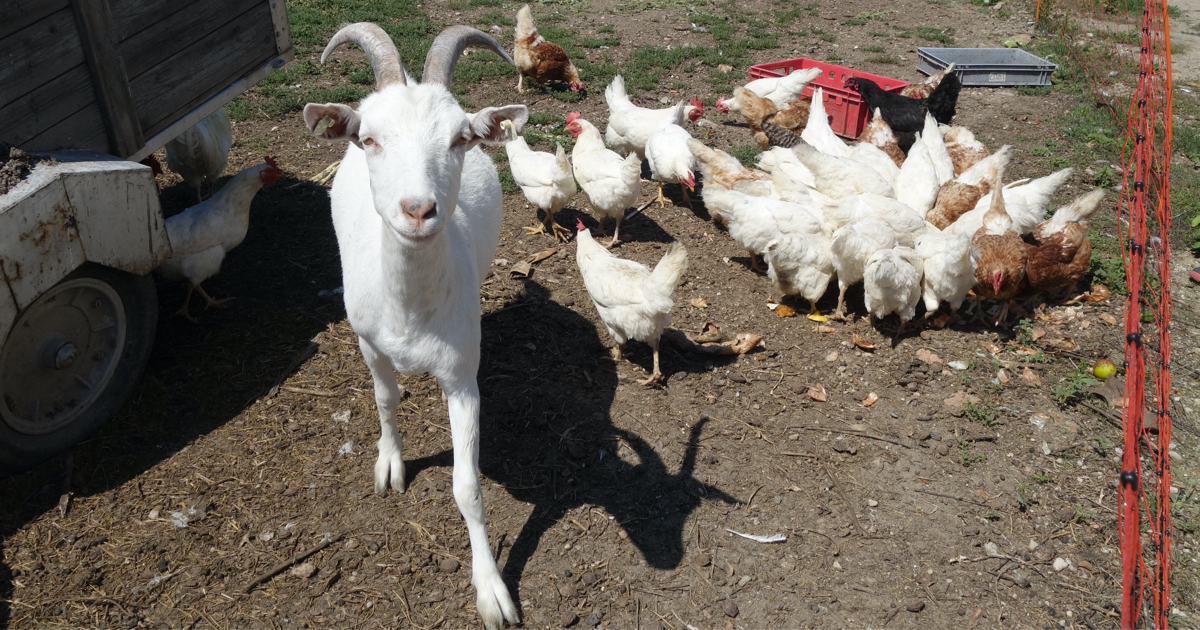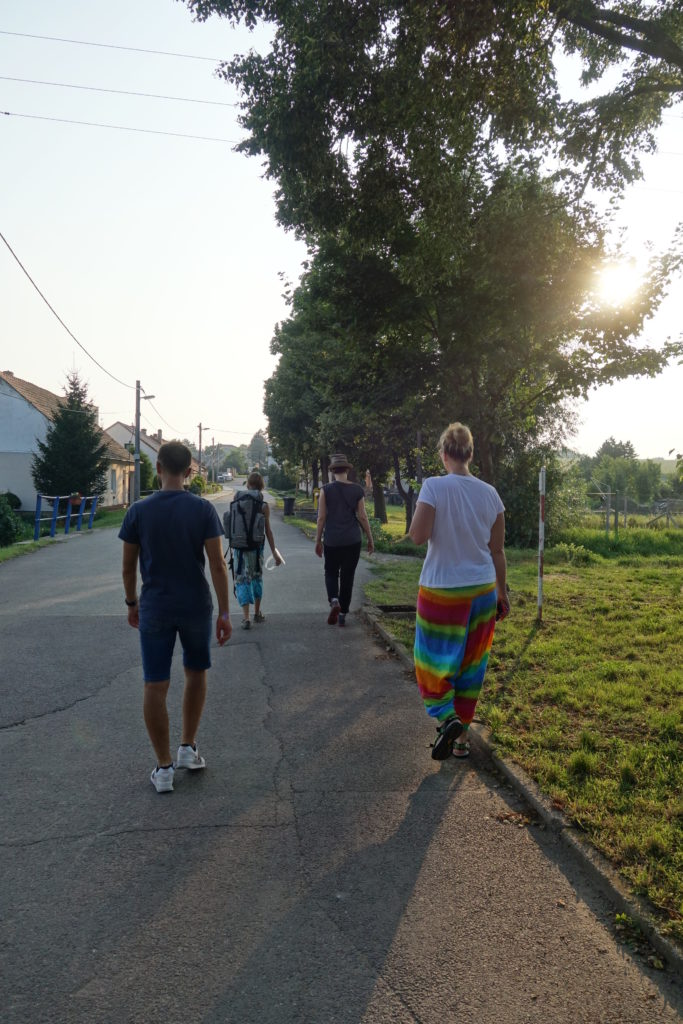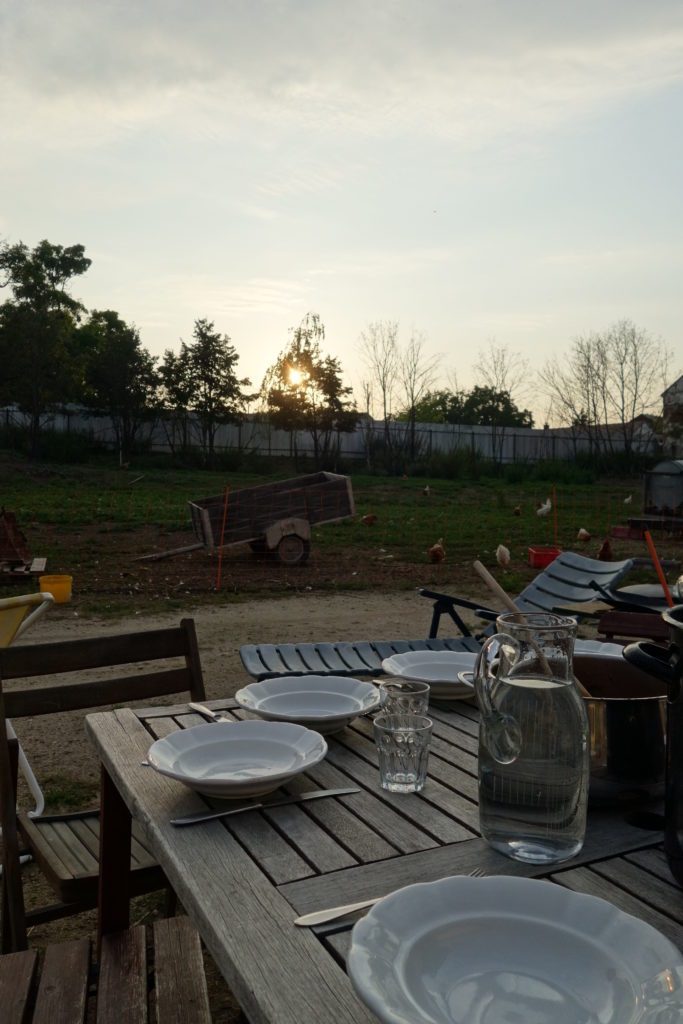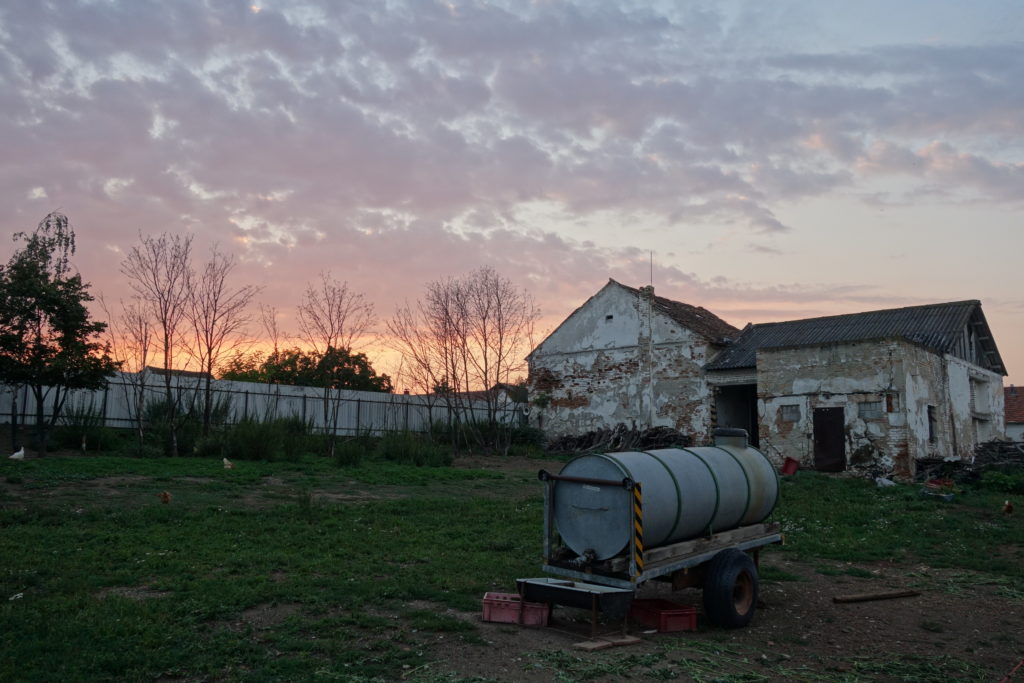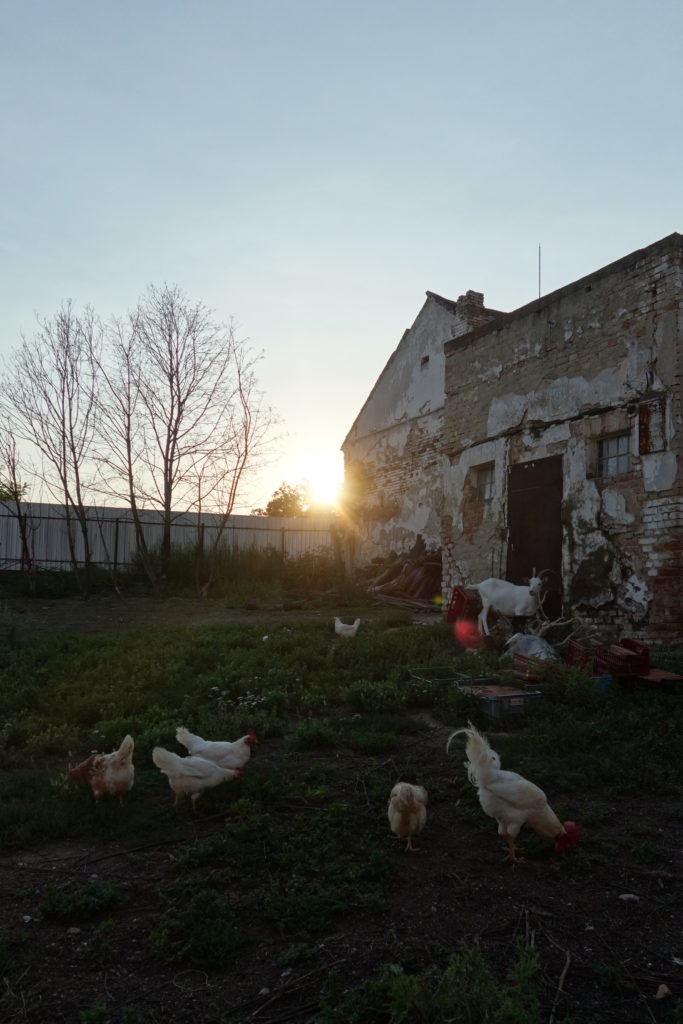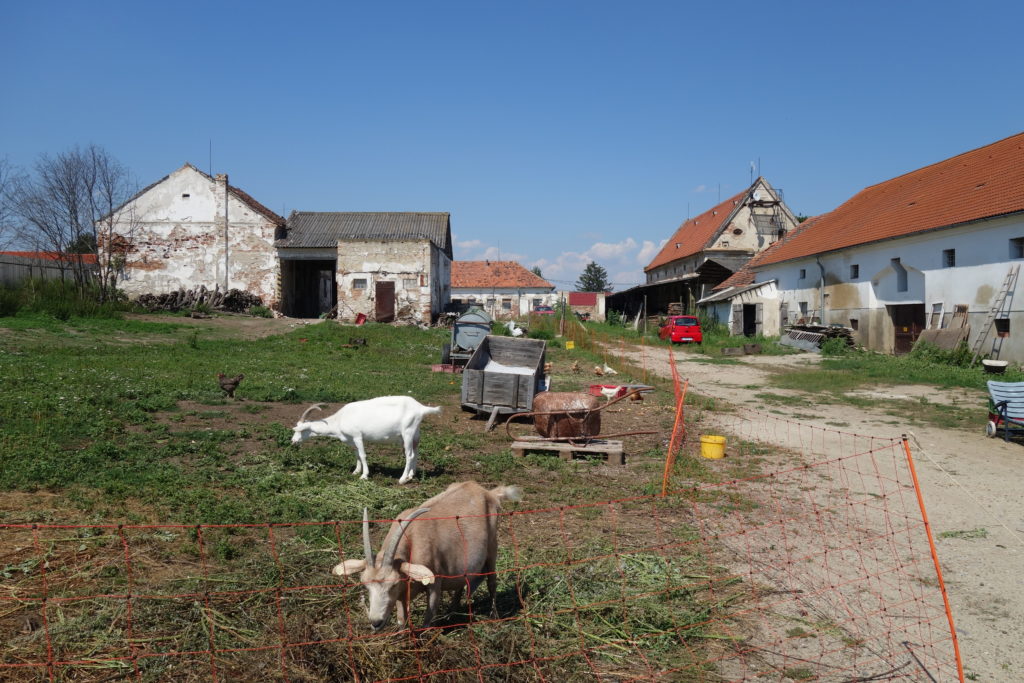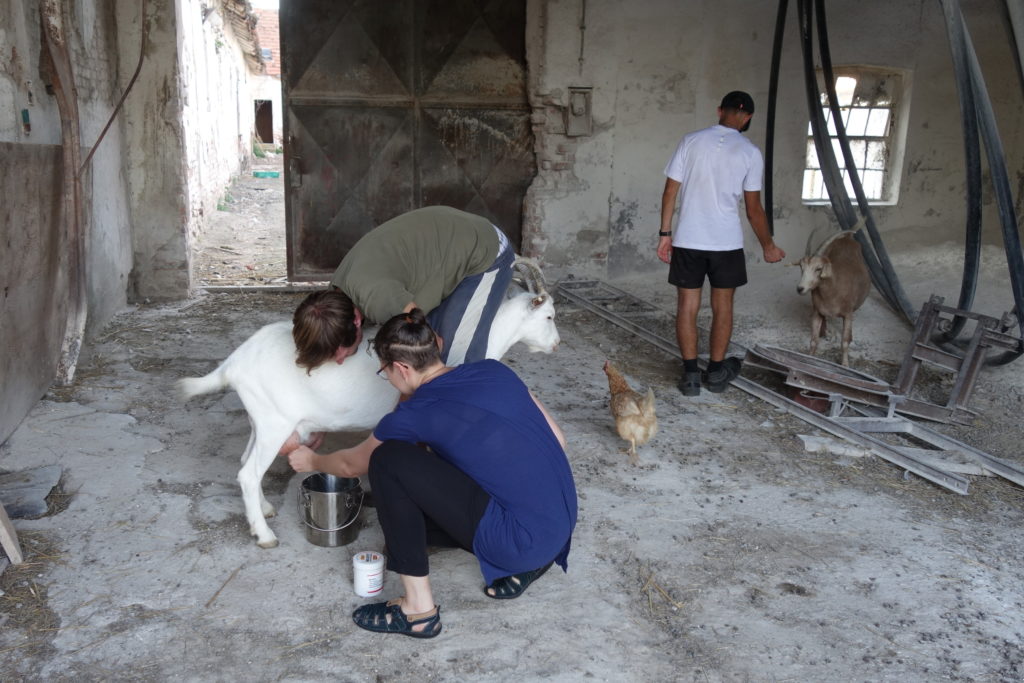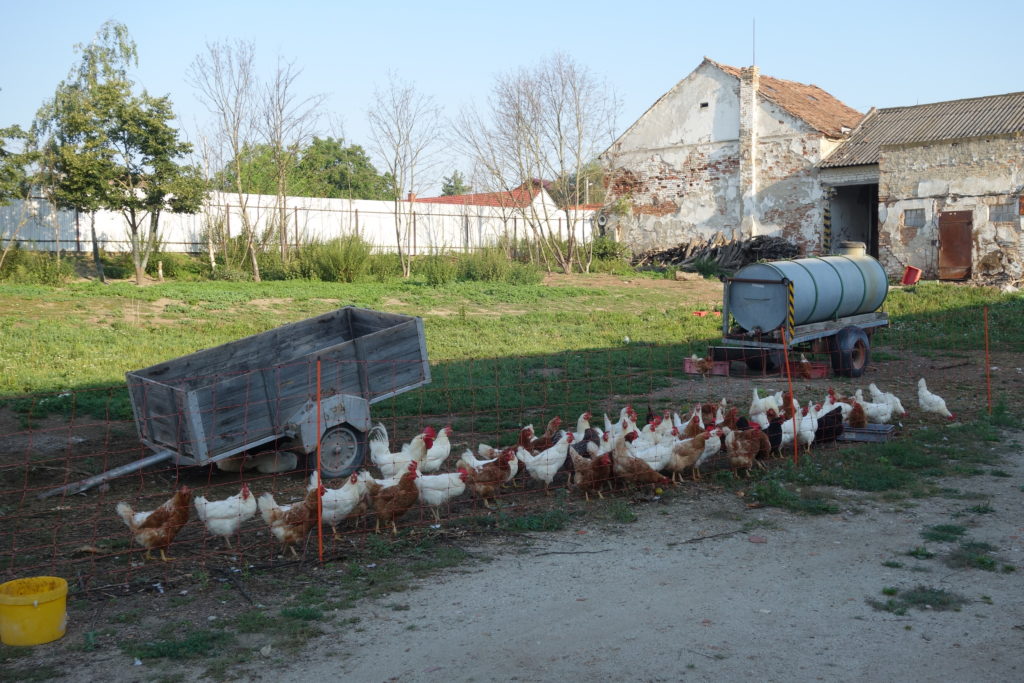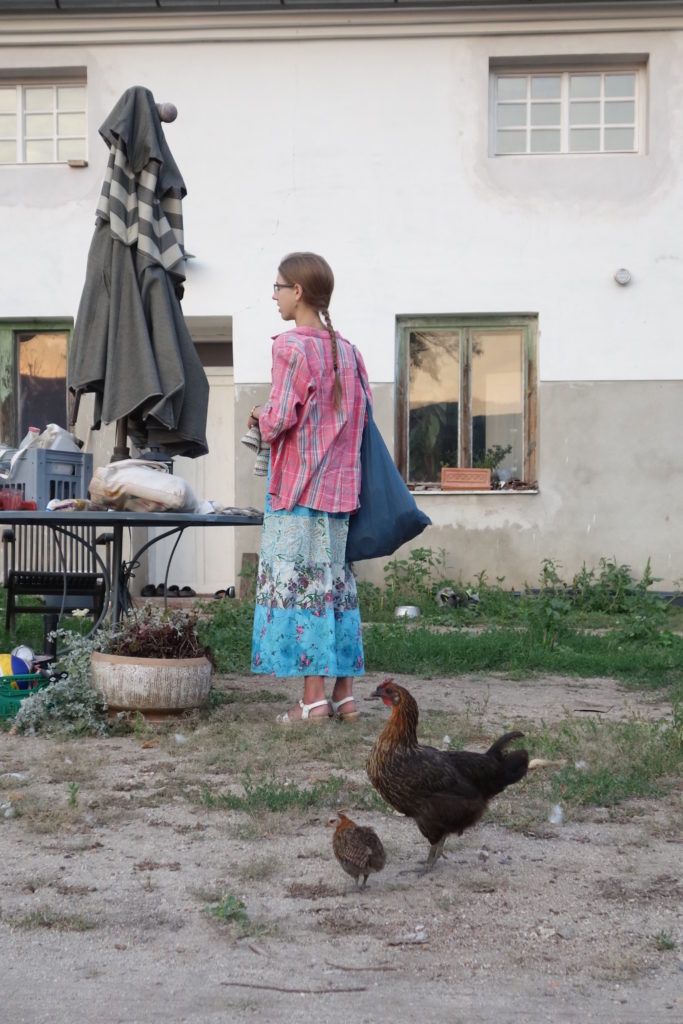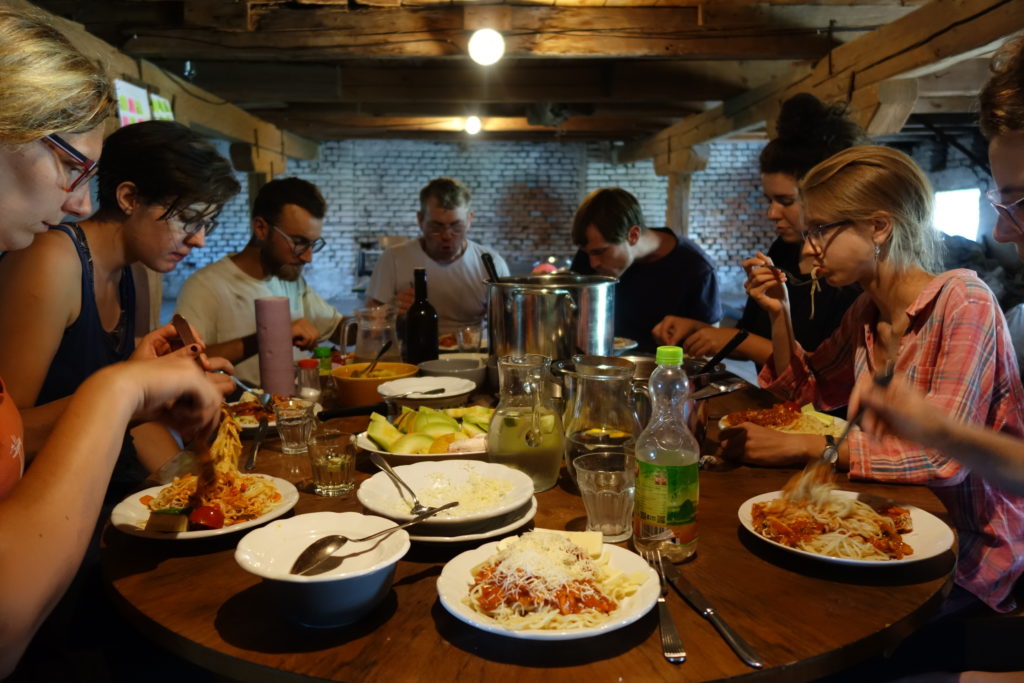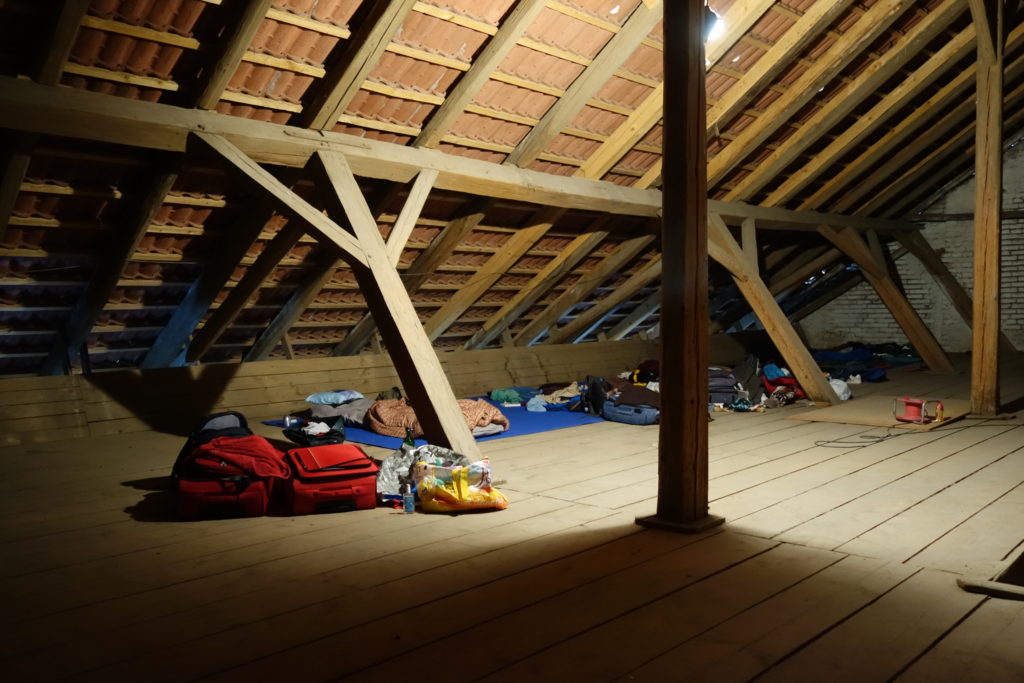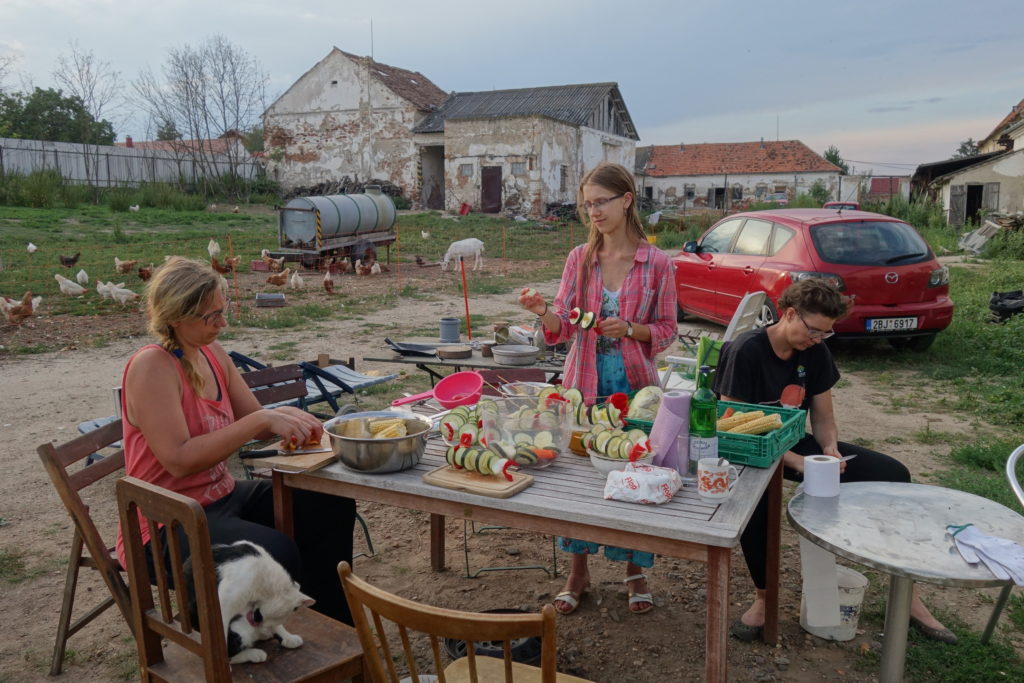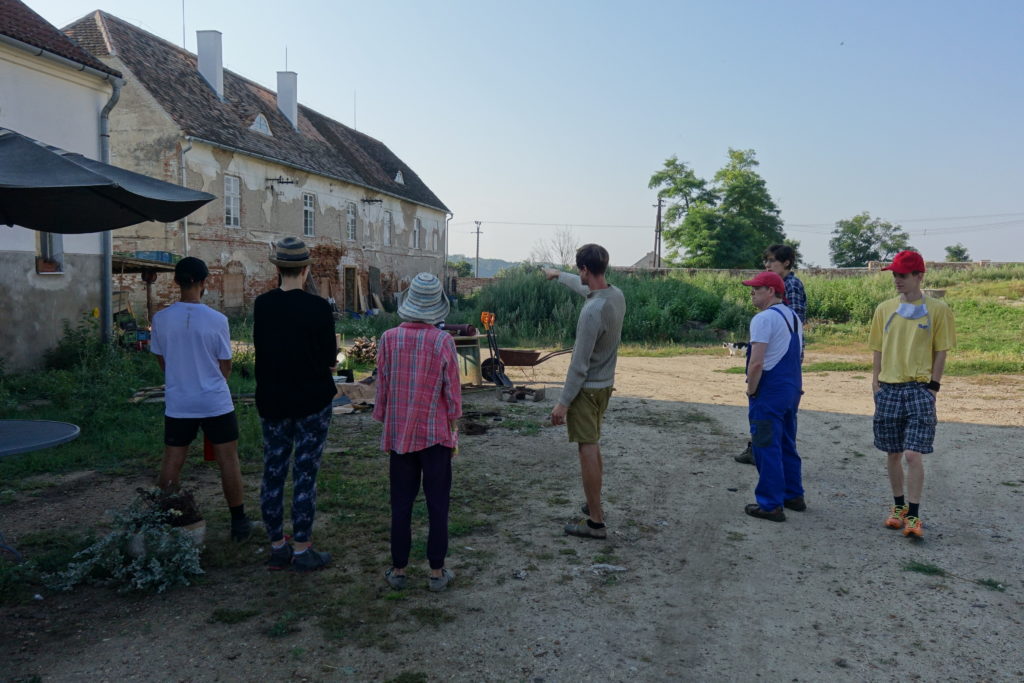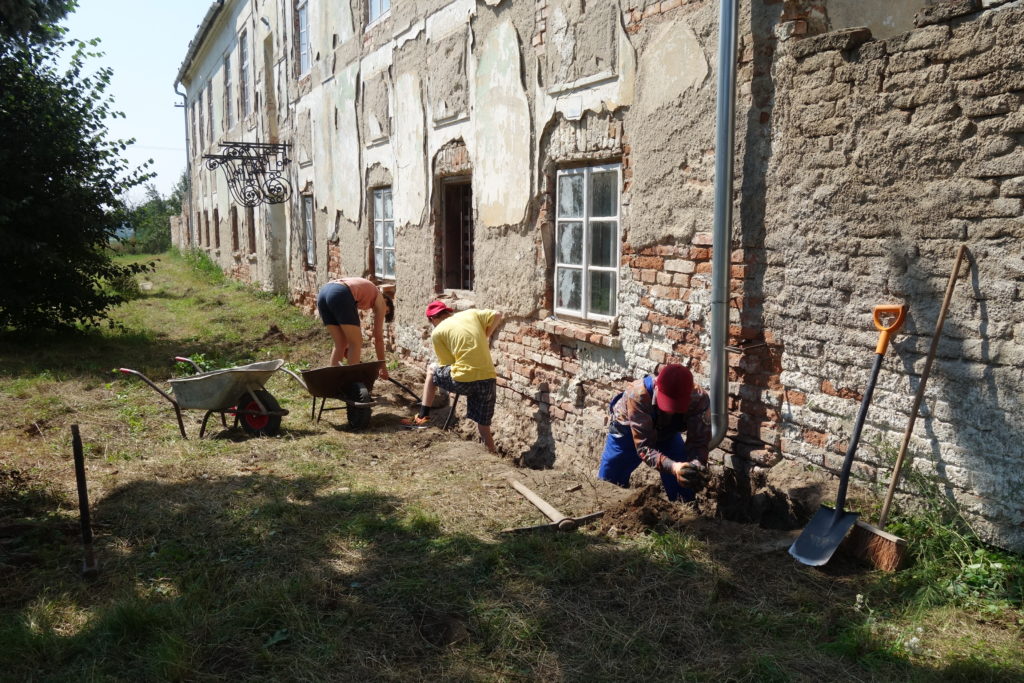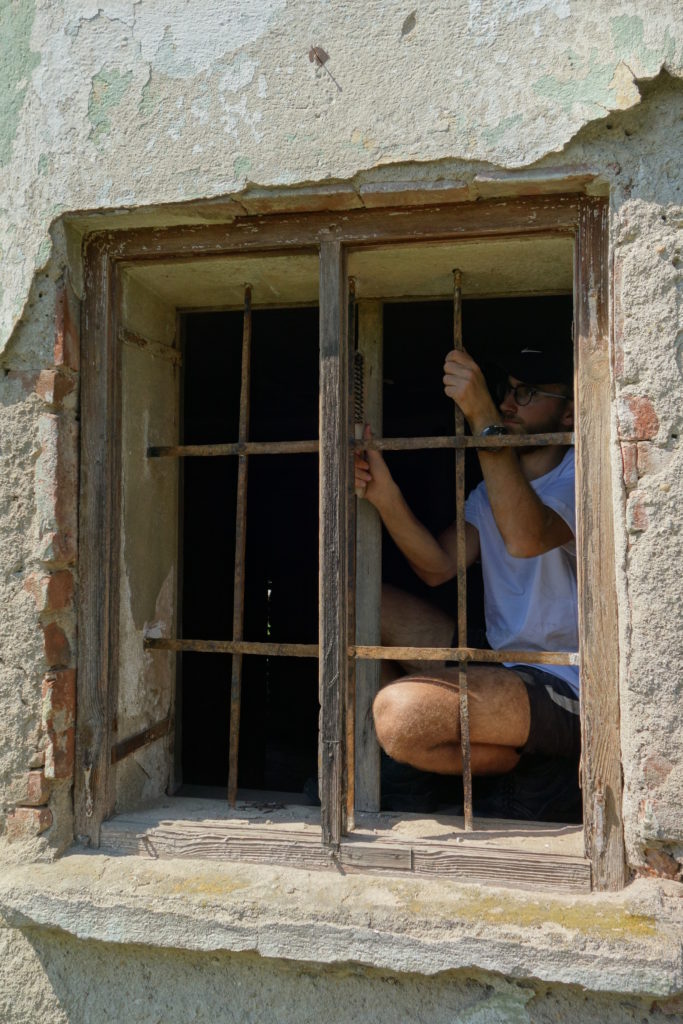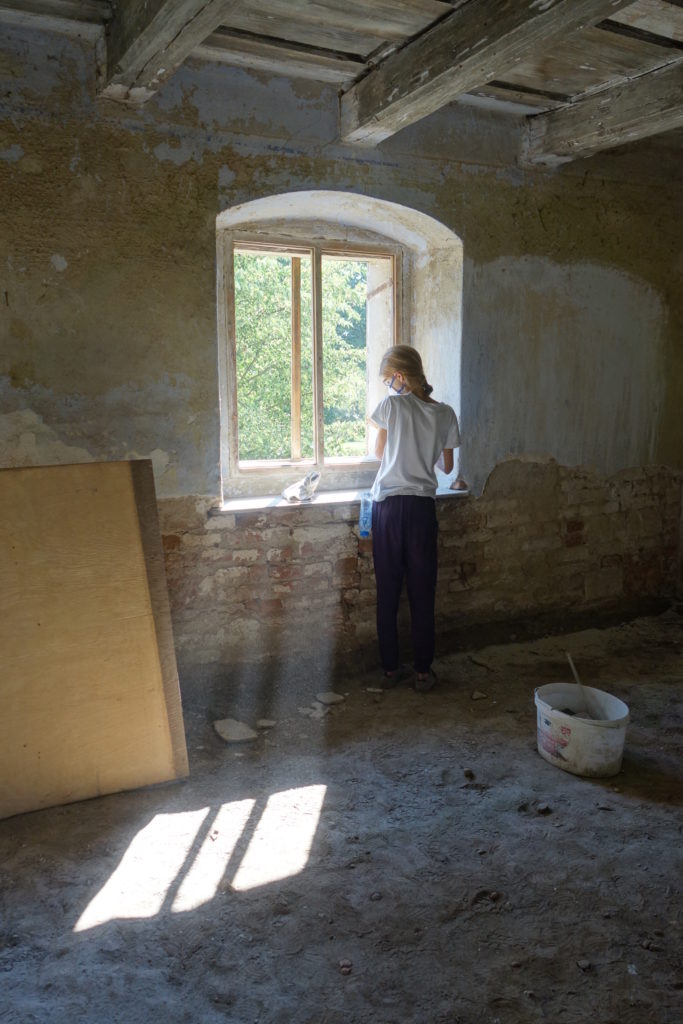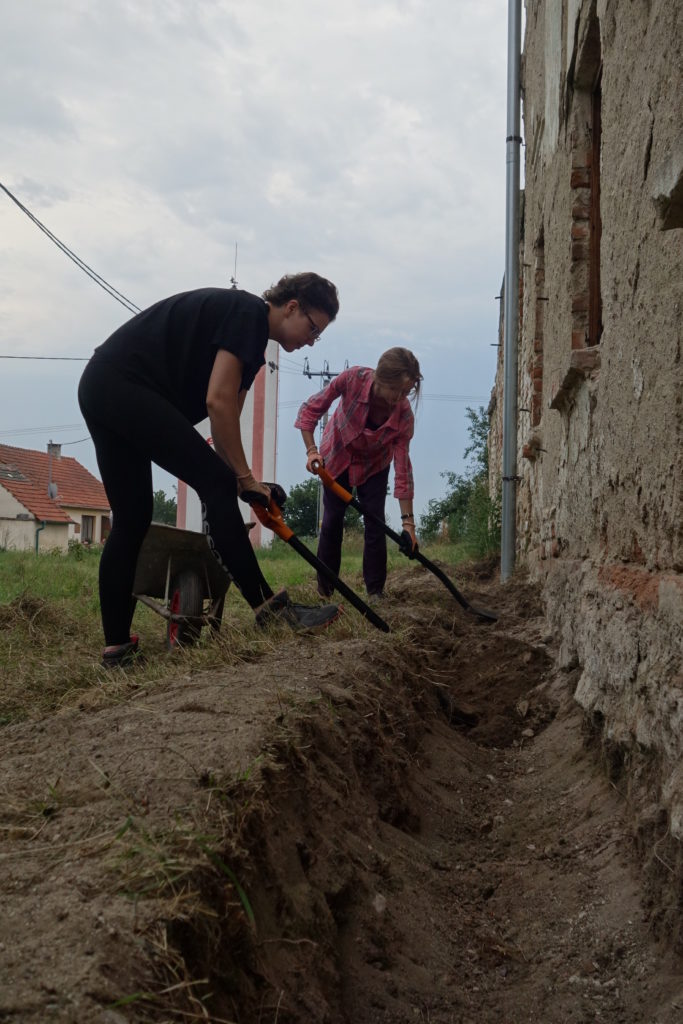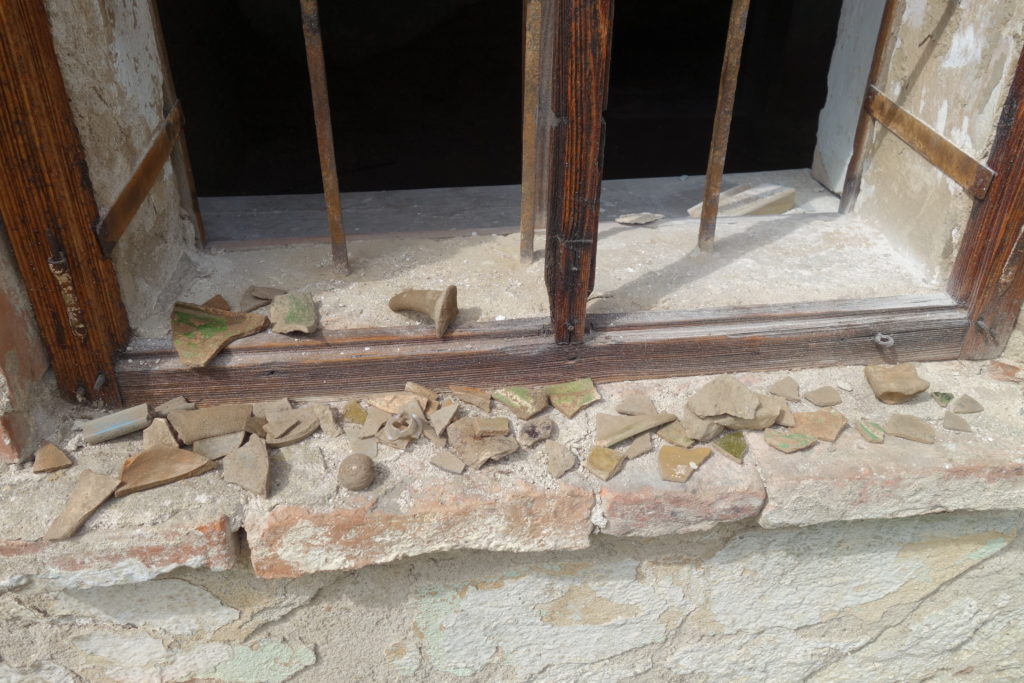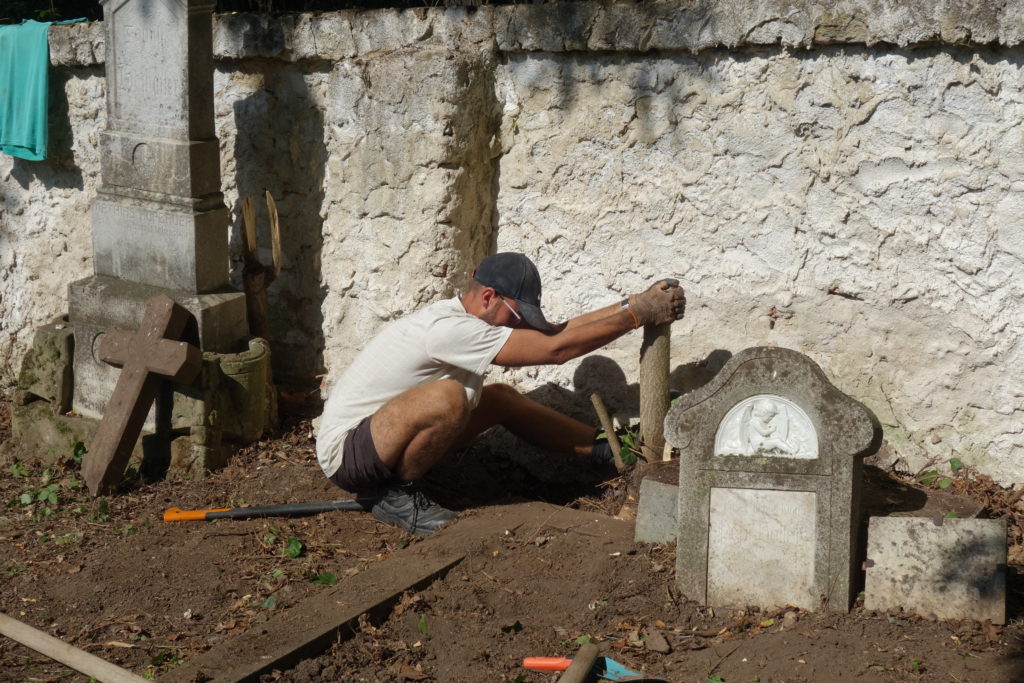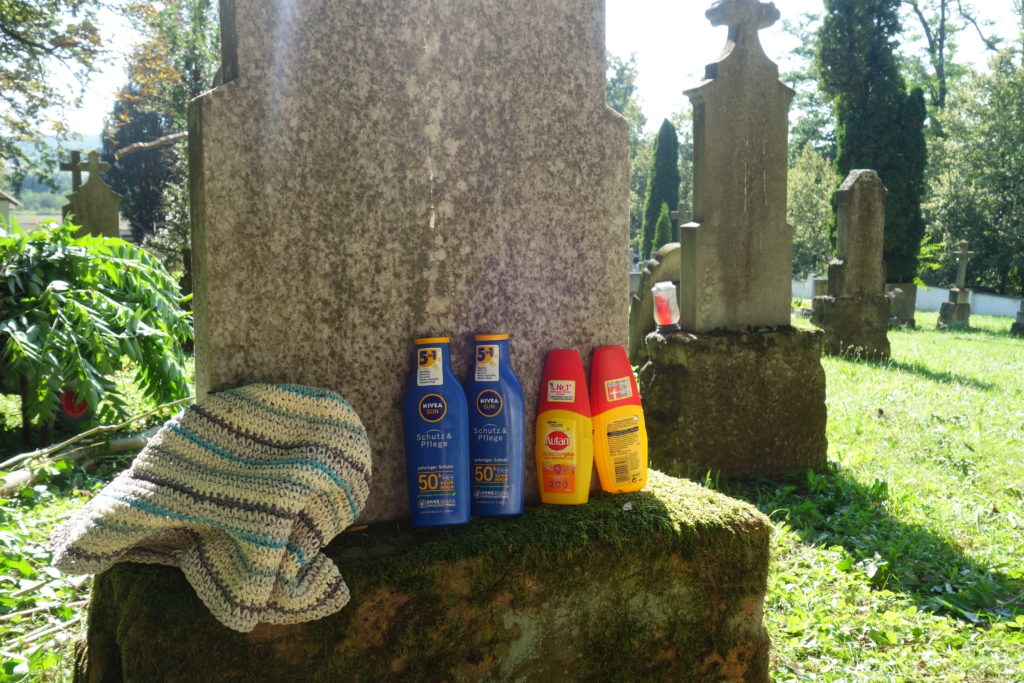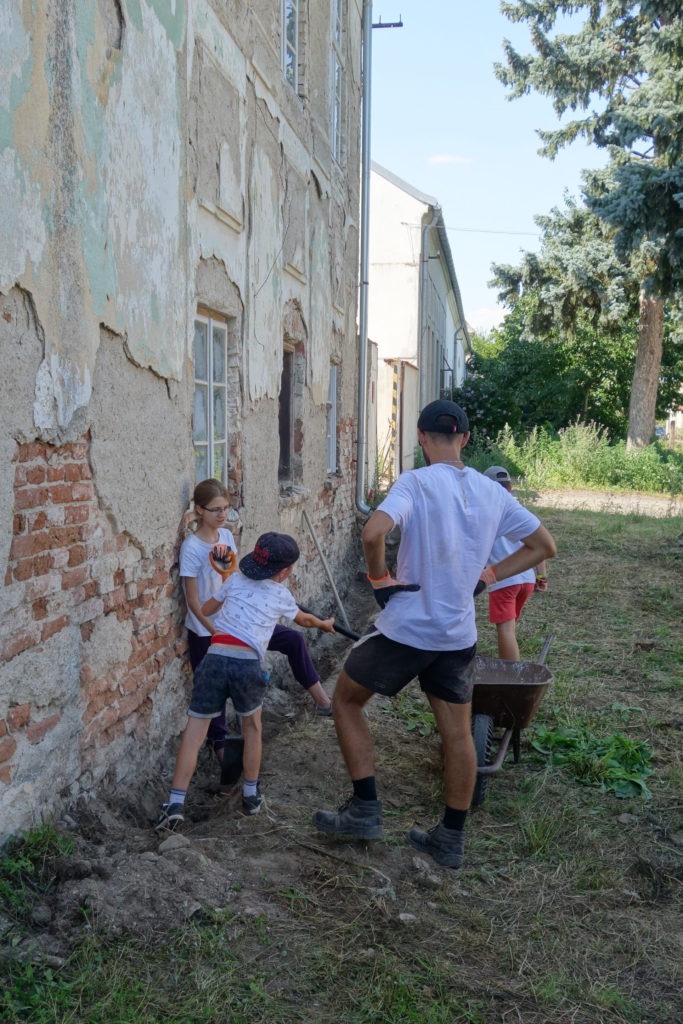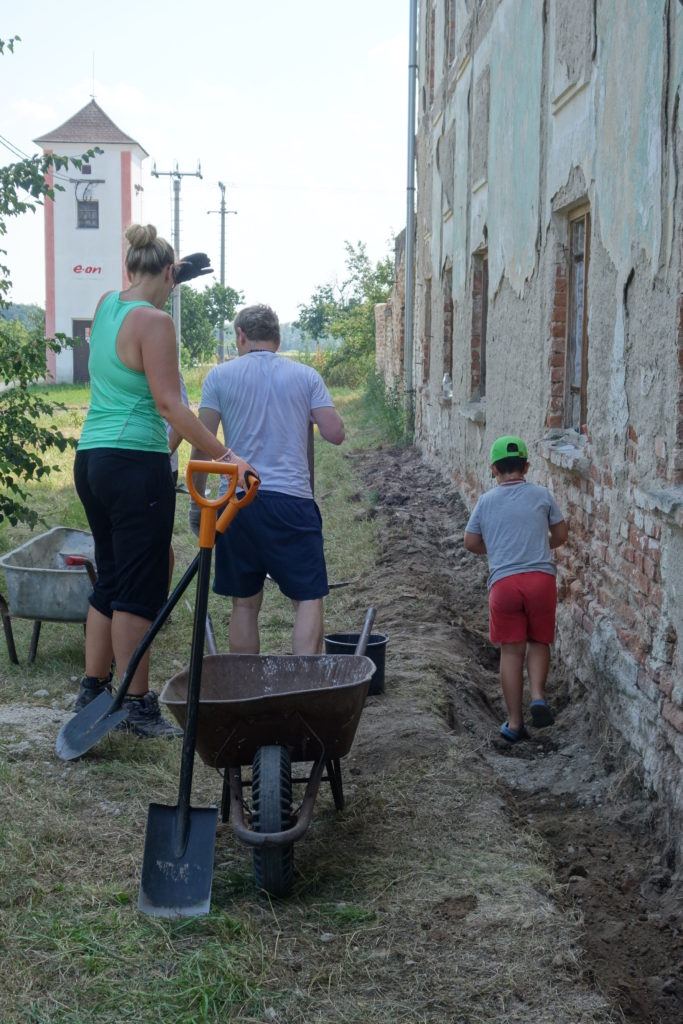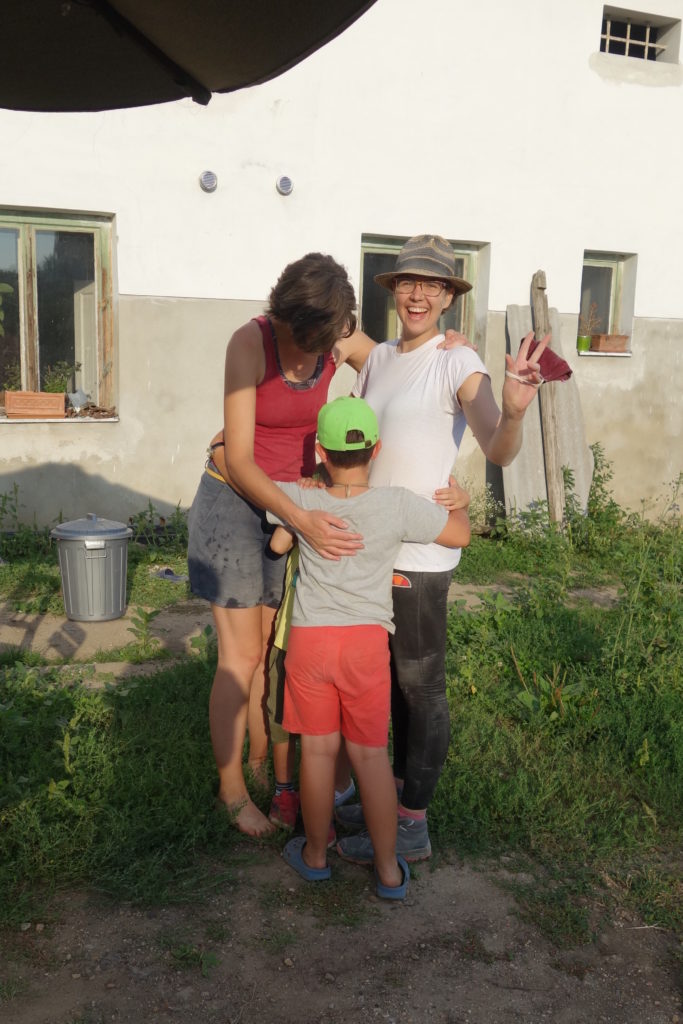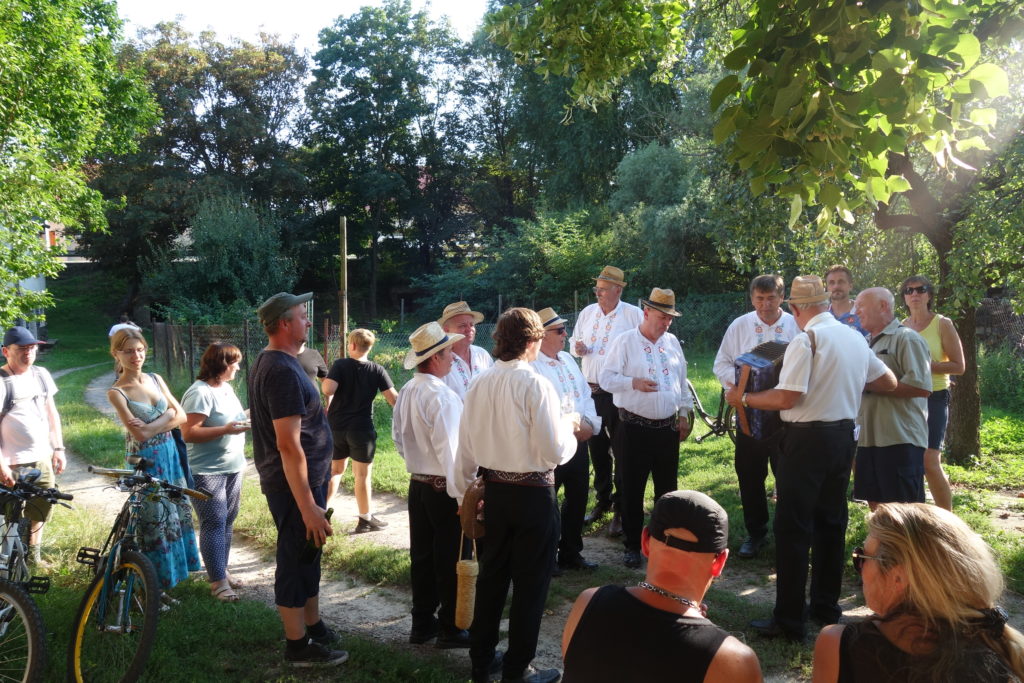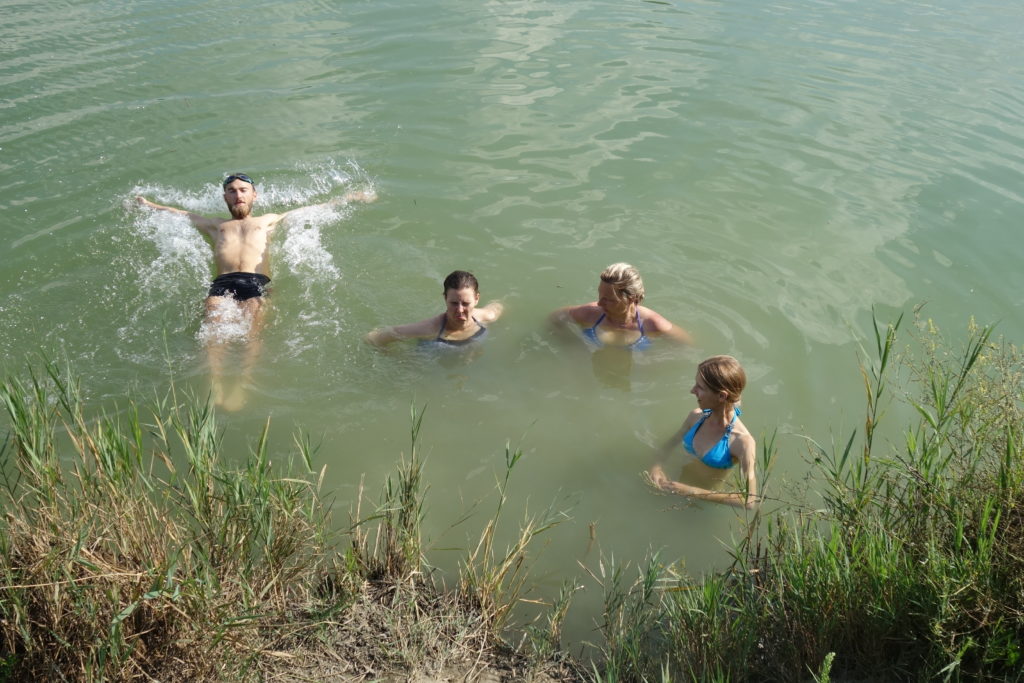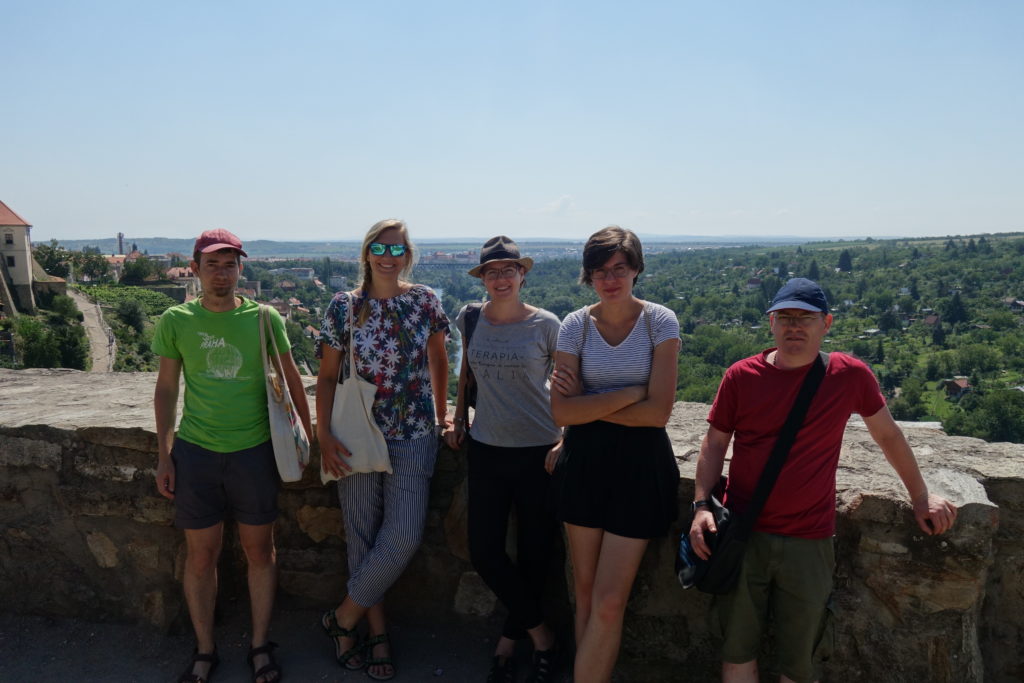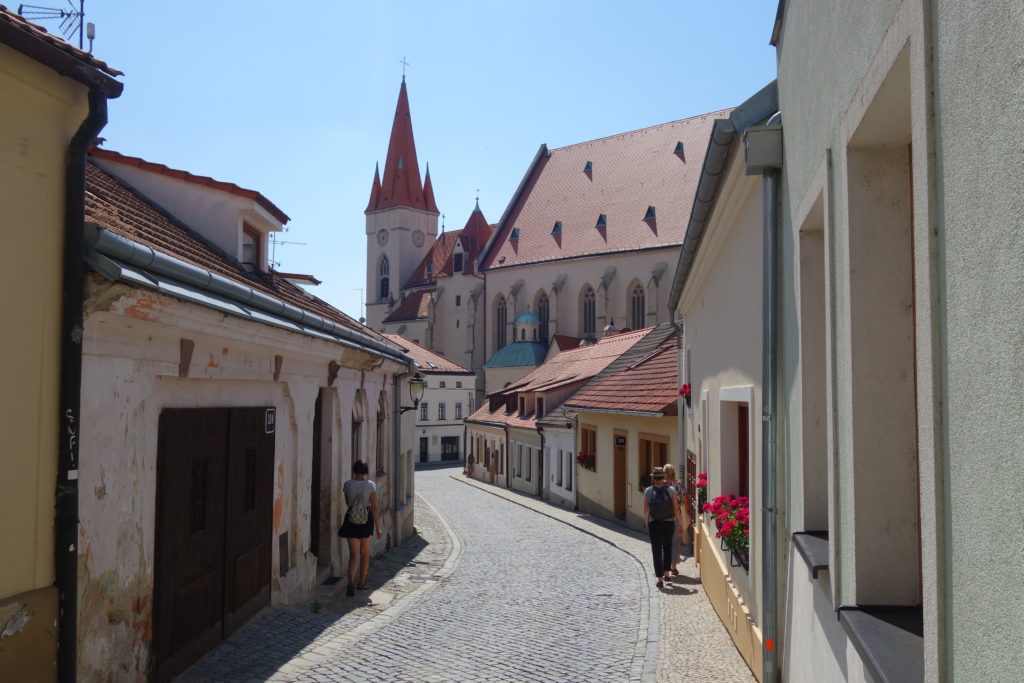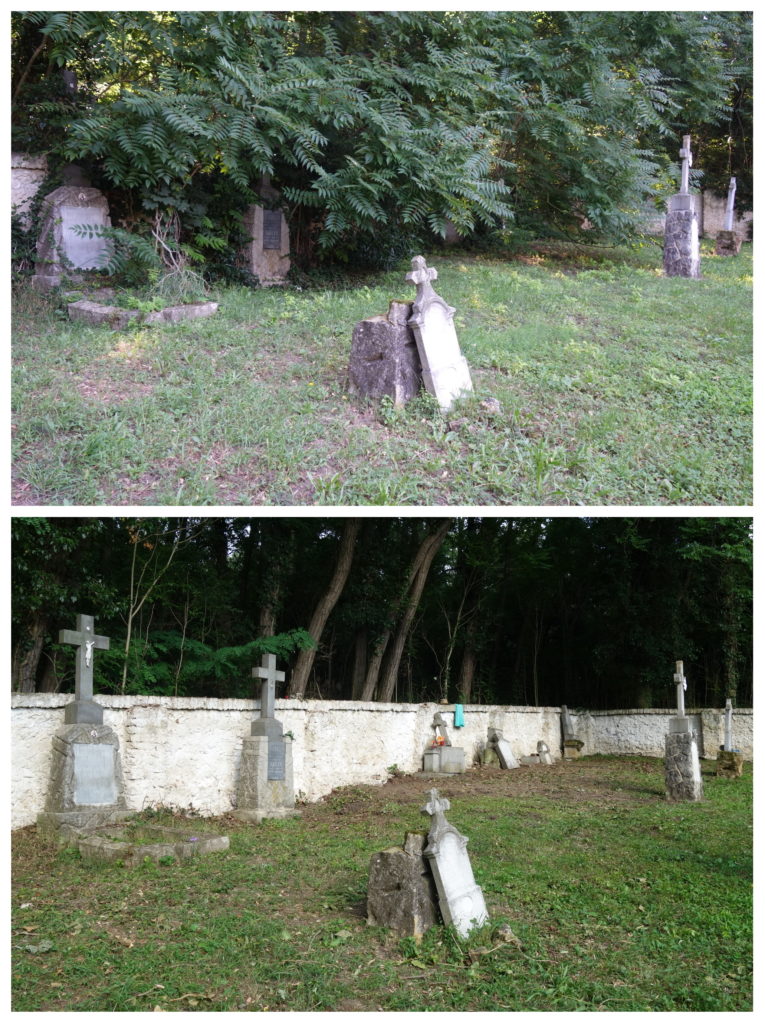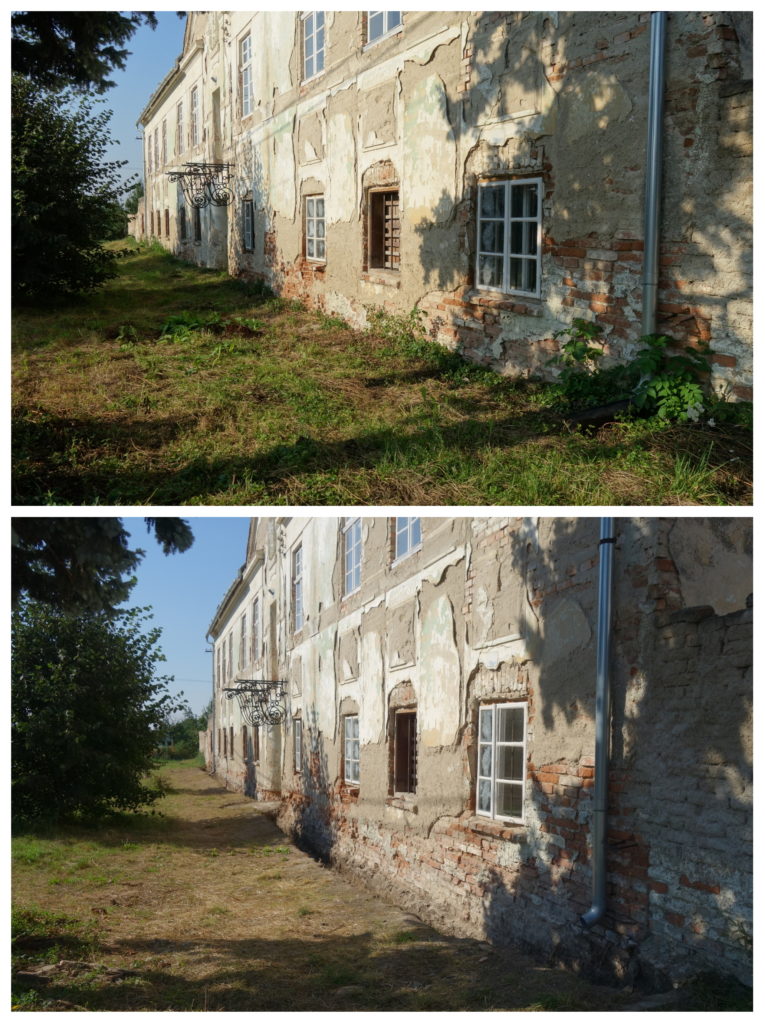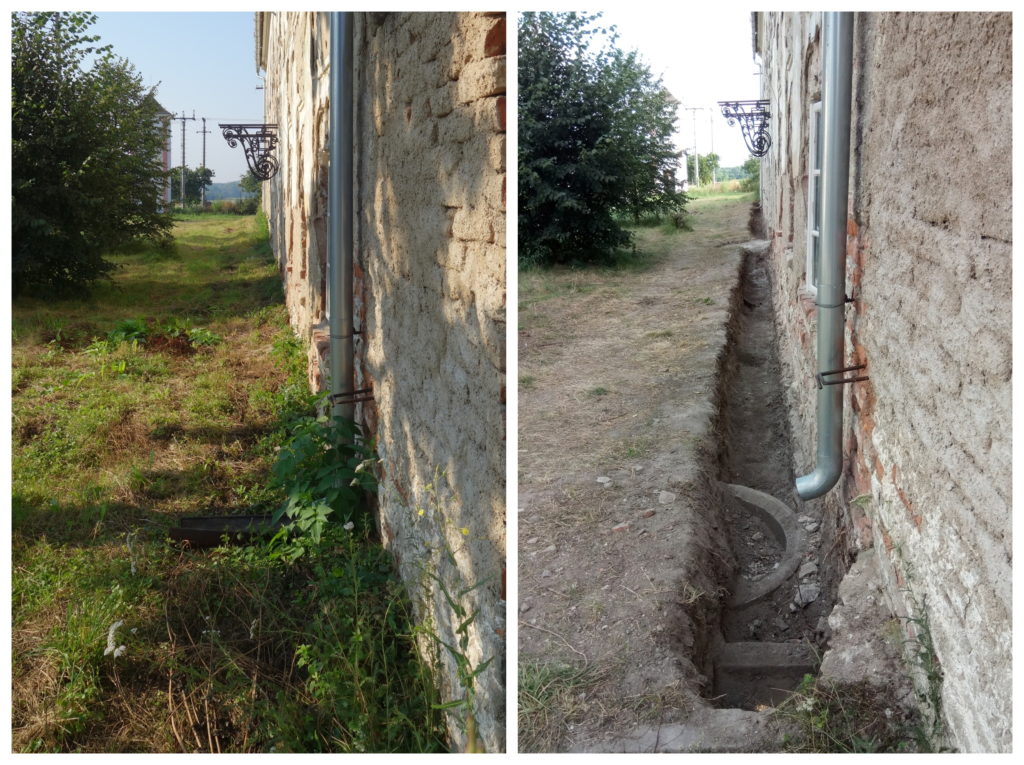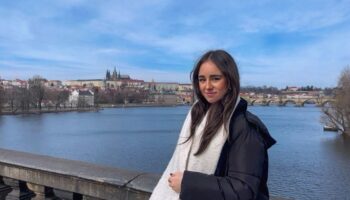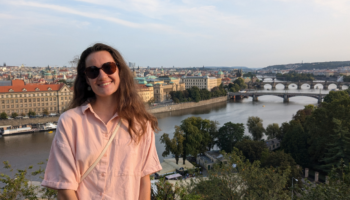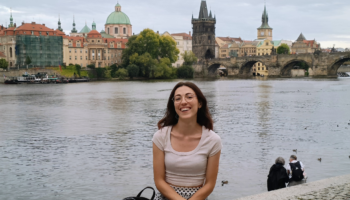Every workcamp begins with a meeting, sometimes it happens already during travelling, sometimes only in the meeting point. We met on the train stop in a little South Moravian village Pravice after arrival of a train from Brno. The conductor was surprised, if the whole train stayed only three people, even from different countries with suitcases, and all of them got out in this remote place. Everything succeeded and on the stop we waited for two campleaders with other participants and like almost complete group we walked to the village and entered the farm, which became our home for next days. And where was prepared for us a first dinner – vegetable with potatoes, which guided us coincidentally (or because of enough food every day) through all the workcamp and we finished it up on the last day – like a workcamp mascot. 🙂
The place was a little bit inhospitable, but you can’t expect any luxury from a historical area, where a reconstruction started just recently. There wasn’t any shadow in the big courtyard without trees, only with a dust and weed. Some of the buildings were falling apart. But still we found an adequate refuge on a loft of a former granary. Sleeping on a wooden floor there was better than at home and in the lower floor was primitively furnished common room, where we were hiding us during lunch time against sun and on evenings against mosquitoes. And like a bonus, we could enjoy a sauna during the day in the sleeping room. But at nights was it pleasant there – until the moment, when at the dawn in the middle of night roosters from all the sides started to crow and woke us up. We were surrounded by animals. Two cats, two goats, which everyone had a chance to try to drink milk and for most of us it was a unique opportunity, and maybe (or exactly) 100 hens with little chickens. So we had enough home products and we could eat every day for breakfast fresh goat yogurt or eggs.
The most important part of the workcamp is of course the work. It was well organized by one of the owners of the farm, but for someone maybe too much monotonous. But we were changing often between two main jobs according to the power or ability inhale a dust. The main task was to dig over half a meter deep hole along whole front wall of the building for moisture isolation. It was quite physically demanding, but we were always finding interesting archaeological finds. We found many coloured pieces of pottery, teeth of some unknown animal, or ceramic relief with an eagle. We also discovered whole tiled pavement in front of the main door and disturbed a family of blindworms.
Who was already tired from the digging and transporting the soil could go inside the building to take a shower with a dust – after cleaning walls or window frames from old paint everyone looked like an old museum exhibit lying there for centuries. The easiest task was to paint the windows. So we could effectively distribute our powers – often the girls caught the pickaxes and for strong boys reminded the painting. For more variety we had a special task for two halves of day – to clean old German cemetery from weeds and little trees. The digging of the stumps between graves wasn’t easy. Hopefully we didn’t disturb the resting ancestors with our heavy work and they will appreciate our improving of the place.
During our work we met also with locals – three little children, who started to visit us every day to help us, because they didn’t have anything else to do during the school holidays. So very often we got the role of supervising teachers and little dwarfs hungry for work did most of the job instead of us – often also on a professional level. Foreign participants from our group tried to communicate with them anyhow – Polish, Russian or attempt to Slovak, and the children learned a few English words.
We didn’t have much free time, because the workcamp was for only one week and we worked also on weekend. But we arranged our schedule to work more hours some days and thanks to it we could have two free afternoons. Once we set out for a walk through forests and bushes (and a forest called “Bush” – Houští) to the neighbouring town Hrušovany for a wine festival. It was interesting, mostly for half of us who didn’t drink alcohol. The return back was an unforgettable experience: at night under the “Moon on the deep sky” (“Měsíčku na nebi hlubokém”), when our professional singer sang us some opera arias.
For the second trip we went by bus to a border village Hevlín to go swimming in a former clay mine next to a still working big brick factory, where we could wash down the dust and anoint ourselves with mud. Both of the trips we closed with dinner in a typical Czech restaurant – once Vietnamese, second time really Czech with a good goulash.
On the last day, which was intended for traveling, we made a “Sunday” and who didn’t already buy a ticket for this day, we went for a longer trip to Znojmo – one of the bigger and interesting towns in this region. We visited the castle and the most important sacral monuments, like the oldest church from the 11th century.
After the trip the rest of our group left to sleep at home of one of the campleaders in the city Brno and I remained alone (only with the owners) on the farm until the next day. It was sad to see all the abandoned places, where we were experienced nice moments together for the whole week.
Thank you all participants for this pleasant experience: Pavlína (CZ), Veronika (CZ), Maria (PL), Anna (PL/D), Etienne (Fr), Ralf (D), Tadeáš (CZ)
And the hosts Robert and Tomáš

